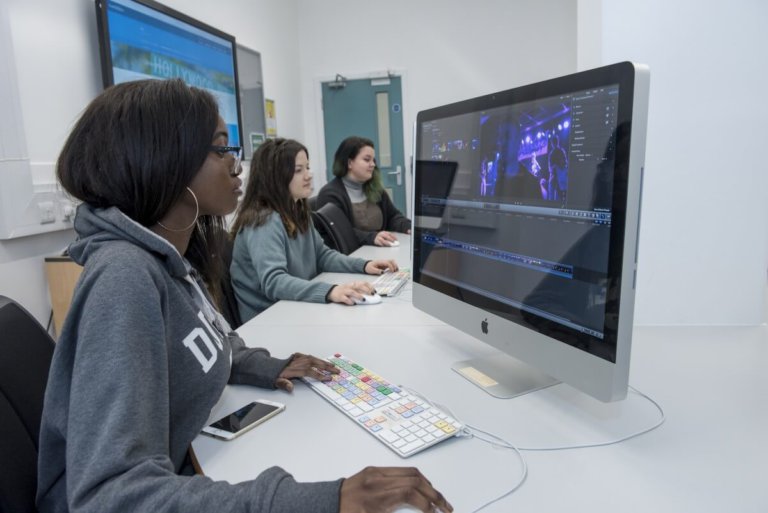
If you’re expecting a future decrease in the popularity of arts and humanities degrees, think again.
Just as prevalent as rising STEM degrees and business specialisations, these two study areas are crucial for navigating corners that new technologies simply cannot reach.
Steering students through myriad new-age workplaces and transformative approaches to social change, many arts and humanities degrees in the UK counteract the challenges faced by creative and cultural industries, all while providing in-depth solutions laced with original thought.
Against AI, the two fields thrive. Knowing what it takes to be ‘human’, arts and humanities allow students to become independent thinkers without the help of automated minds.

University of Southampton
Technologies will play a part in these massive workforce shifts, but as the latest World Economic Forum (WEF) Future of Jobs Report explains, this will also heighten the need for creative thinking and self-awareness.
The report states that future workers will need strong initiative alongside “a willingness to take on responsibilities and challenges.”
They will require creativity and originality so they can “try out their own ideas and have the ability to come up with unusual or clever ideas about a given topic or situation.”
They will also need to acquire autonomy so they can “plan their work with little supervision.”
In the face of doubt, the two study areas show career stability and a promising role within an uncertain future.
Encouraging students to express and analyse their inner thoughts, feelings and ambitions, and to interrogate the world around them through a human lens, the arts and humanities unleash the required skills above and more.
One UK higher education provider that understands the real-world values of these skills is the Faculty of Arts and Humanities at the University of Southampton.
Set in a global top 100 university, the faculty is a purposely diverse, globally-facing and locally-connected centre of excellence for research, teaching, outreach and enterprise.
Rethinking the past and enriching the present, staff and students here are forward thinkers with the capability to shape our future, driven by a unique outlook and the faculty’s innovative courses.

University of Southampton
If you opt for the MA Global Literary Industries Management programme, you’ll attain exclusive access to world-class curators, theatre directors, novelists and heritage venues.
Offering modules in creative writing, scriptwriting, narrative non-fiction, literature and heritage, literature and economics, transnational studies, Shakespeare and contemporary global fiction, you’ll expand your knowledge of English literature, its relevance in the wider world and the impact of various transformations of the written word.
Optional modules develop creative and critical skills in a range of ways. The programme concludes with the completion of a large independent project, allowing you to create your own professional portfolio to showcase to future employers.
Career paths may delve into publishing, the heritage industry, creative industries and arts management. Would you prefer a future management career within the global music business?
If so, the MA International Music Management programme at Southampton is unmissable.
Through this course, you’ll develop an understanding of the global music business, from live performance to recorded music for streaming, advertising, video games, films and new media.
Plus, you’ll learn key business skills through direct engagement with local venues such as Turner Sims Concert Hall and masterclasses from industry partners such as Sony and Universal!
You’ll study in the context of a vibrant music department of world class composers, performers and musicologists, who will guide you through the year, and have plenty of opportunity to get involved in societies and musical events.
According to Liujun Chen, a current Masters student in Music, “All the music department staff are very supportive and easy to talk to, which makes me feel strong and respected. Friends I have made in the department and the societies I am part of have made me feel loved and secure. What more can you ask for?”
Alternative cultural industries such as the film industry also have the potential to bridge the perceived gap between culture and commerce.

University of Southampton
Examining the importance that film has on society, the MA Film and Cultural Management degree studies film policy in a range of national and global contexts, encouraging you to engage with contemporary debates in film studies and cultural management.
Additionally, the course provides a framework through which the contemporary cultural sector can be analysed and understood, while simultaneously providing theoretical knowledge of film and its industrial dimensions
“This MA offered me a lot of interesting and valuable knowledge and experience…and studying at the Faculty of Arts and Humanities was the greatest experience for me. Here you have nice tutors and classmates! They helped and supported me a lot in the last year, not only in academic study, but also in my personal life.
“Moreover, the UK also has a strong background in professional independent film production, distribution and exhibition. These aspects were what I was interested in and wanted to learn about during my time in Southampton,” says Jingyi (Linda) Kang, MA Film & Cultural Management graduate.
Merging a variety of career-driven courses, Southampton Faculty of Arts and Humanities brings together the specialisms of archaeology, English, film studies, history, modern languages and linguistics, music and philosophy to create a singular student hub of creativity.
That’s why the faculty earned top 5 slots in the Guardian University Guide 2020 for its music, film and philosophy courses!
So, what are you waiting for? Set your future alight at Southampton and check out their new scholarship opportunities for Arts and Humanities PGT international students.
Follow the University of Southampton on Facebook, Twitter, YouTube, Instagram and LinkedIn
Liked this? Then you’ll love…
Quiz: Which Creative Arts major is right for you?
Becoming a global citizen: The power of an arts and social sciences degree







